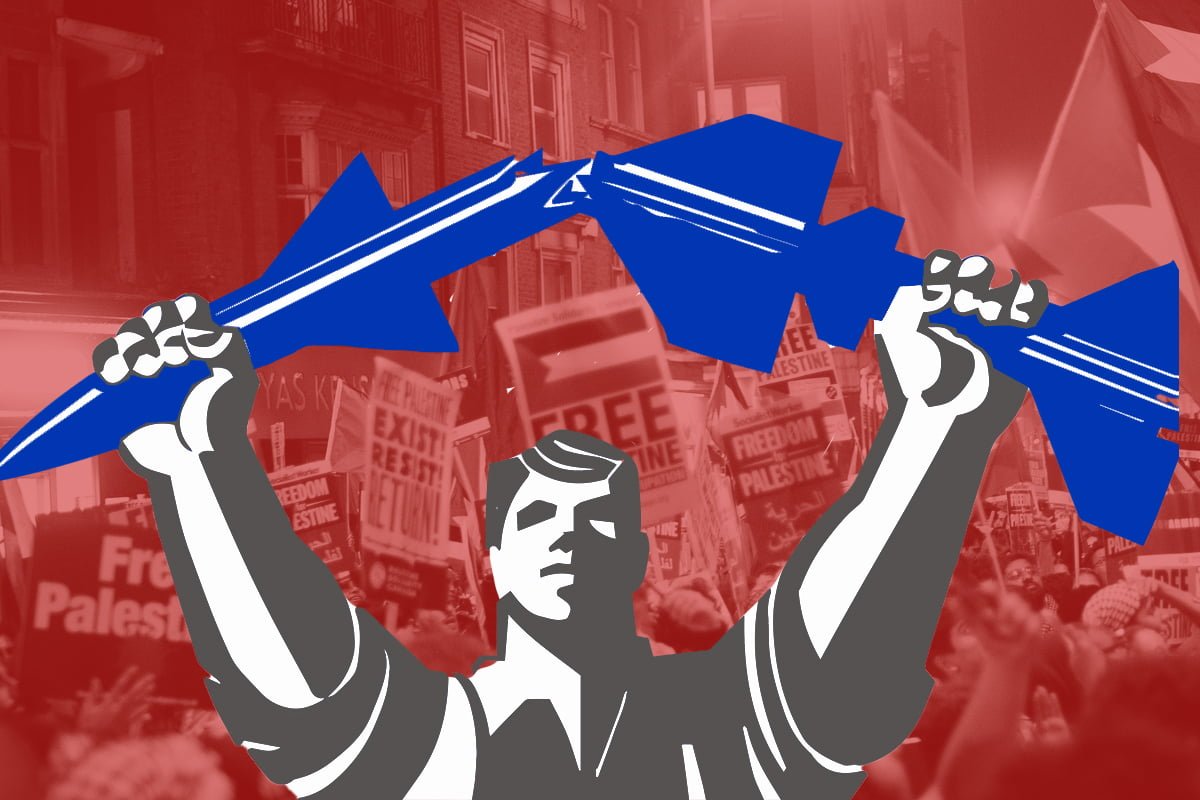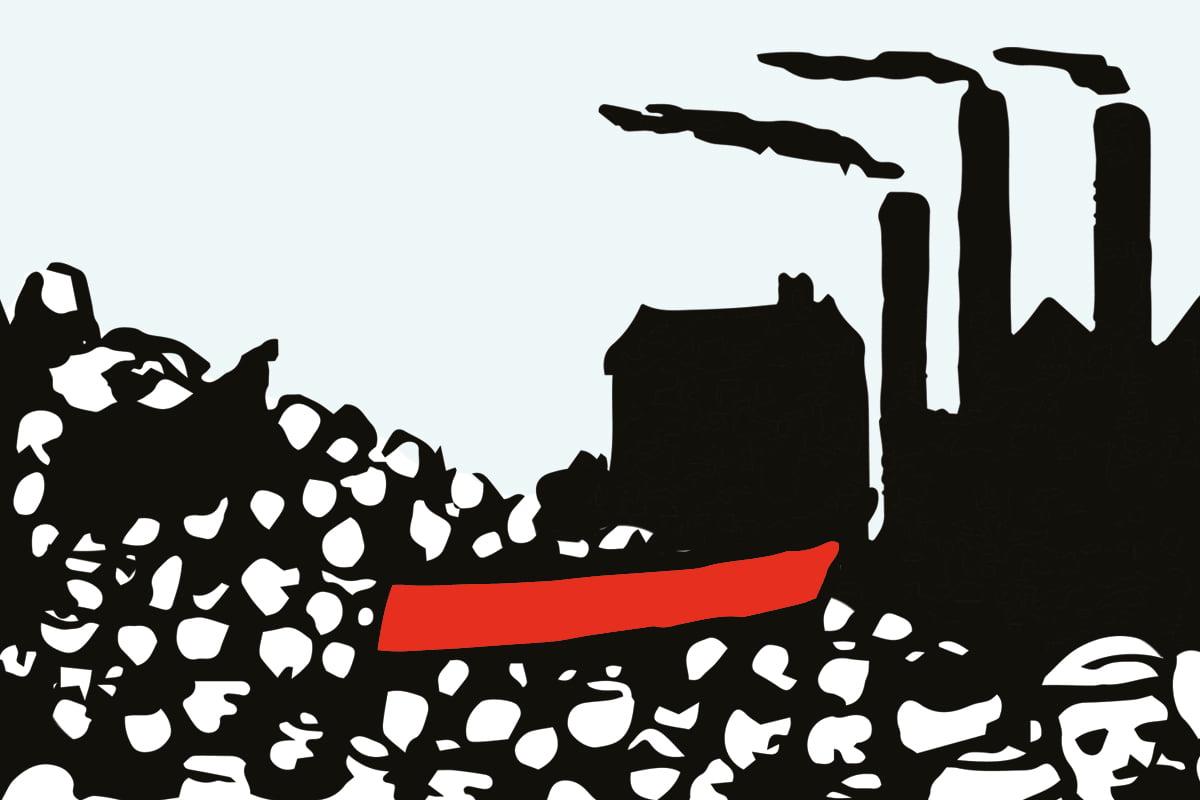The trade unions have reawakened over the past couple of years, after decades of dormancy. Hundreds of thousands of workers have taken to picket lines. The strength of the working class has been clear to all.
Barring a few exceptions, however, most of these disputes have drawn to a close with very little won. Despite massive days of coordinated action, union leaders, as is their role, have been keen to splinter workers’ unity and wrap fights up, with only a few crumbs gained.
This stems from the union leaders’ reformist politics. They believe that capitalism can provide for workers; that peace between the classes is possible.
Divorced from the day-to-day realities of rank-and-file members, they are all too happy to concede in return for a few scraps from the bosses’ table (or even the mere promise of scraps).
Even those that appear more fighting – perhaps more sincere – in speeches and at rallies are not free of these political weaknesses. Eventually, they all ‘fall in line’.
Despite the enormous struggles they could potentially lead, their reformist outlook means that the organised working class is held back, only fighting for minor tweaks to the capitalist system.
But any gains are soon snatched away by the bosses and bankers, as is currently plain to see. What they give with the left hand, they take back with the right.
Minimum Service Levels
This reformism is most apparent when attacked.
Take the TUC’s response to the Tories’ minimum service levels legislation. They have organised a march through the town of Cheltenham for tomorrow, Saturday 27 January (partially to commemorate the historic struggle of GCHQ workers who were denied the right to unionise).
But calling just one demo – in response to a law that threatens the right to strike for millions – is dangerously complacent, to say the least.
The government is putting pressure on employers to use the law, as rail company LNER almost did recently against the train drivers union, ASLEF. The Tories are no doubt eager to appear tough against the unions ahead of a general election.
The trade unions must respond with equal if not greater determination, to smash this and all anti-union laws. This requires a mass campaign involving not just demos, but also strike action, coordinated across the movement.
Palestine
The limited horizons and cowardice of the official leaders of the trade union movement extends to wider questions.
Their response to the ongoing genocide in Gaza, for example, and now the bombing of Yemen, has been entirely passive. They are happy to speak out in favour of a ceasefire. But in deeds they do nothing.

Grassroots union members – such as those in Unite – are right to demand more from their leaders (see letter below).
Despite calls from the working class in Palestine, the unions have not sought to enforce workers’ boycotts; to call workers out of armaments factories; or to dare wield the power they have to shut down the entire UK economy, in order to strike a blow against British imperialism.
They are failing in their duty to uphold workers’ internationalism, and to stand with the oppressed through their actions, not simply in words.
Job cuts
Also recently, Tata bosses confirmed their plans to close blast furnaces at Port Talbot steelworks in South Wales, meaning thousands of job losses.
The response of the trade unions who organise these steel workers has been pitiful, to be frank. When first notified, they proposed a plan to keep some of the jobs, but only until 2032.
Officially, the unions say that strike action is not off the cards. But the stakes are too high for dithering. Port Talbot, as a community, will be further devastated if these cuts go ahead.
The Welsh town isn’t the only area facing job cuts in the coming period. Council bankruptcies are spreading like the plague. This could result in mass redundancies everywhere.
The trade union movement must not passively accept such assaults on workers’ livelihoods. The capitalists and their markets cannot be trusted. Nor should we beg cap in hand.
Revolutionary resistance
The working class are like lions. Unfortunately, they are led by donkeys. The challenges workers face – economic crisis; attacks on rights, pay, and conditions; imperialist wars – require genuine class fighters to tackle them.
This means demanding nationalisation of the key sectors of the economy, workers’ control and management, and socialist planning; not tweaking the capitalist system, but sweeping it away.
Militant tactics – including factory occupations, strikes, mass demonstrations, and solidarity action – will be required in the struggle for these demands. This is what’s necessary to secure a future fit to live in for our class.
Revolutionary resistance, not reformist cowardice: that is what the Revolutionary Communist Party that we are building must offer. We must get to work.
Unite leadership’s failure on Palestine
Luca Ferrara, Unite UEA (personal capacity)
My union, Unite, is one of the largest in Britain organising workers in arms manufacturing. It has the potential power to help end the conflict in Gaza.
But Unite leaders have refused to call their members in the defence industry out, despite the horrors in the Middle East, in which British imperialism is actively complicit.
The leadership has largely remained silent – even prohibiting executive members from participating in demonstrations under a Unite banner!
They hide behind the cover of “protecting members jobs” as an excuse to do nothing. This is a slap in the face for the Palestinian trade unions, who have called for international solidarity against the war crimes being committed against the Palestinian people.
For these senior officials, the trade unions aren’t a lever for the working class to fight the oppression of the capitalists – at home or internationally. They are a vehicle for high salaries and a comfortable life.
Our leaders should be militant defenders of working-class interests, here and abroad. But these important positions have been filled with reformist, ‘respectable’ types that would rather hold back workers, not challenge imperialism or the bosses.
The tide is turning. A new generation – radicalised by the world around them – is rising up. This generation must get organised, sweep away these bureaucrats, and transform the trade unions into the fighting organisations our class deserves.
Rank and file demand real solidarity with Palestine
Ellen Morton, Glasgow Communists, EIS member (personal capacity)
Leading figures and rank-and-file members from 15 of the largest trade unions came together on 17 January to discuss Palestine, in an online meeting organised by Stop the War.
It began with a contribution from Suzan Tayseer Salam, a Palestinian trade unionist, speaking on the horrific reality of Israeli occupation and the genocide in Gaza.
Calling on workers to refuse to handle weapons being built in Britain and sent to Israel, she ended her speech by saying: “Long live the struggle of the working class! Long live Palestine!”
Despite this inspiring call for proletarian internationalism, union leaders in the meeting had different ideas. They insisted on timid actions such as before-work protests, Zoom meetings, and passing motions on committees.
“It doesn’t have to be strikes”, one said. “That is too high of a bar…It can be vigils at lunchtime, it can be wearing a badge!” Another said they couldn’t do anything Starmer wouldn’t approve of, because it’s an election year!
Rank-and-file members at the meeting were outraged by the refusals to do anything concrete.
“If the unions provided the leadership they should, it would massively increase the impact of support for Gazans”, a postal worker correctly stated. “TUs are internationalists or we’re nothing. The failure of leadership by most unions is shameful.”
A CWU member spoke about her branch organising around Palestine, before it was shut down by the union leadership, who told them to focus on “bread-and-butter” issues! Some even called for a one-day general strike in solidarity with Palestine.
It is clear that the trade union bureaucracies are desperate not to rock the boat. They are therefore limiting their ‘actions’ to encouraging workers to wear badges – or even run cake sales.
But the oppression and slaughter of the Palestinian people, and the support of this by western imperialism, has spurred a whole layer of workers into action.
We should not let our leaders’ cowardice hold us back. If just one workplace struck, or refused to handle Israeli goods, it would spark a wave across the country, with massive popular support. It’s time to act.






